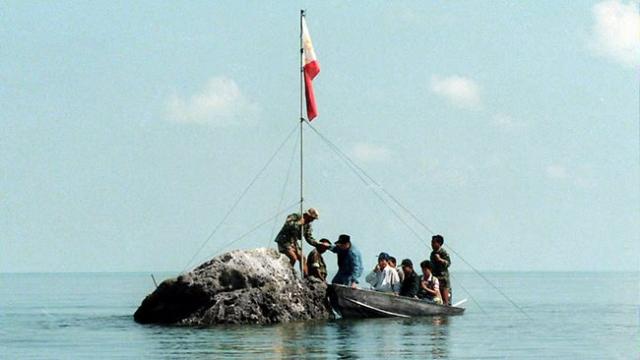
MANILA — The Philippines on Wednesday protested China’s harassment of Filipino fishermen and Chinese poaching activities at a Philippine-claimed Bajo de Masinloc.
In a statement Wednesday night, the DFA accused China of “intentionally” ramming three Filipino fishing vessels at the shoal, stirring tensions anew between the two neighbors locked in decades-long territorial rifts over resource-rich areas in the South China Sea.
Manila likewise protested China’s harvest of endangered giant clams in a separate incident on Jan. 22 at the shoal, also known by its international name, Scarborough Shoal.
Chinese embassy representatives were summoned to the Department of Foreign Affairs to receive the two diplomatic protests.
The DFA said three Philippine-flagged fishing vessels, F/V OG Barbie, F/V Ocean Glory 2, and F/V Ana Marie, were rammed on purpose by Chinese Coast Guard Vessel 3412 on Jan. 29 at the shoal, “causing damage to the vessels and endangering the lives and safety of the Filipino fishermen on board.”
China asserts ownership over nearly the entire South China Sea even as it overlaps with the territories of its smaller neighbors like the Philippines.
The shoal, the site of a dangerous maritime standoff between the Philippines and China in 2002, is located 124 nautical miles from Masinloc town in Zambales and 472 nautical miles from China’s nearest landmass in Hainan.
It fell under Chinese control on the same year and has since blocked Filipino fishermen and Philippine patrol vessels access to the area.
“The Philippines strongly protested China’s continuing actions to harass and prevent Filipino fishermen from legitimately pursuing their livelihood in that area,” the DFA said.
“Chinese fishing vessels were likewise spotted transporting collected giant clams to other Chinese fishing vessels. The act of harvesting giant clams, which are among the most endangered marine species, entails the crushing and destruction of surrounding corals which result in the permanent destruction of the reef itself,” the DFA said.
China, it said, has violated its obligations under a 1982 United Nations maritime accord and other international laws for the protection of endangered species.